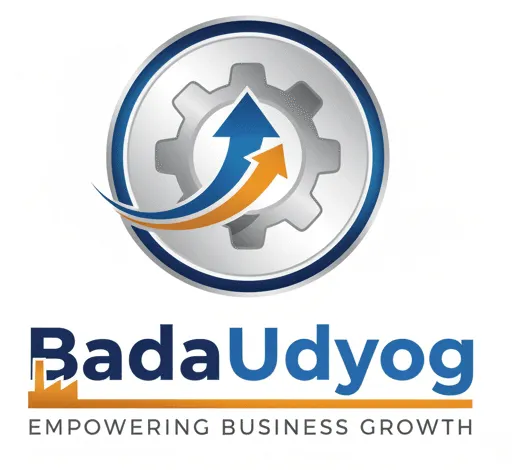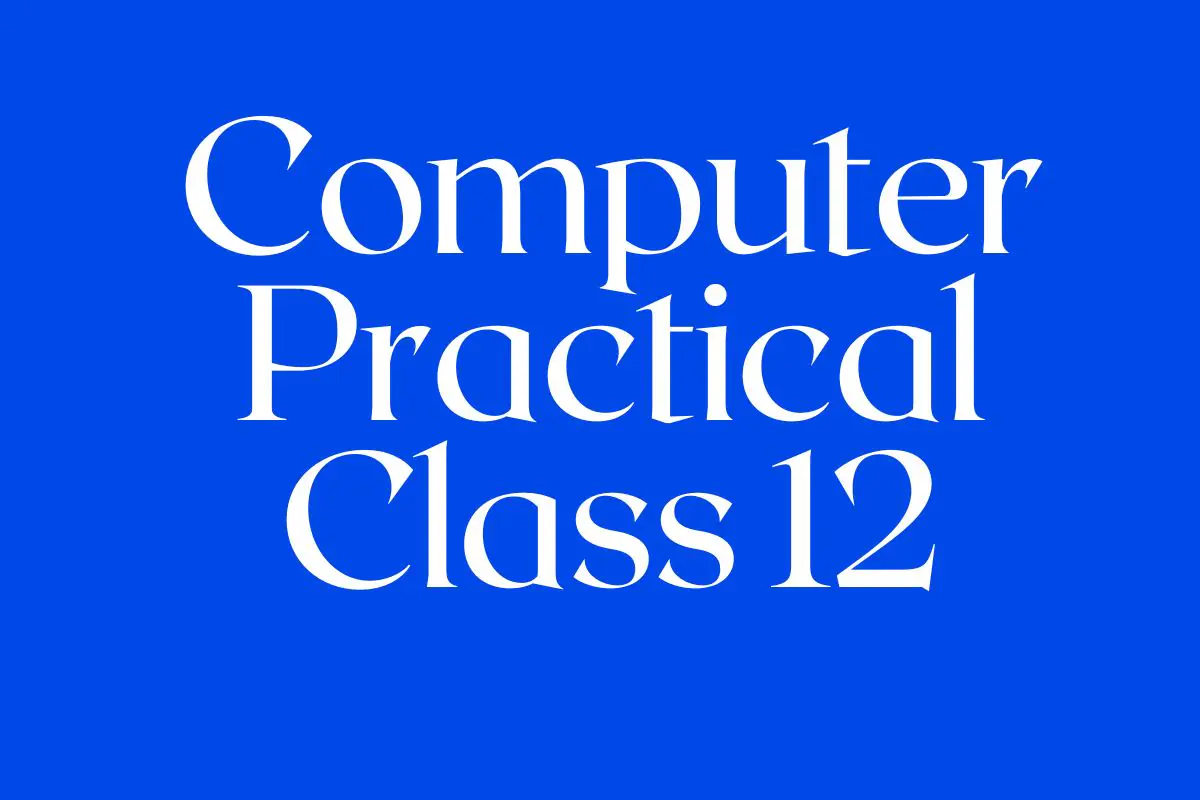Introduction to Computer Science Class 12 Practical
Overview of Practical Sessions
Computer Practical Class 12 In the dynamic field of computer science education, practical learning plays a crucial role in bridging the gap between theory and real-world application. The Computer Science Class 12 Practical sessions offer students the opportunity to delve into hands-on exercises that enhance their understanding of key concepts and technologies. Through a series of structured practical sessions, students gain valuable experience in programming, database management, web development, networking, cybersecurity, and software testing. This article provides an in-depth exploration of the practical aspects of Computer Science Class 12, highlighting the importance of practical learning and outlining the various topics covered in these sessions.
Introduction to Computer Practical Class 12
Computer Practical Class 12 Hey there, brave soul embarking on the journey of Computer Science practicals in Class 12! This is where the real magic happens beyond theoretical concepts. Get ready to roll up your sleeves and dive into the fascinating world of hands-on computer learning.
Overview of Practical Sessions
Computer Practical Class 12 In these practical sessions, you’ll not just be staring at screens and typing away mindlessly. Oh no, you’ll be actively engaging with programming languages, data structures, algorithms, and database management systems. It’s a playground for your logical thinking and problem-solving skills to shine.
Importance of Practical Learning in Computer Science
Computer Practical Class 12 Practical learning in Computer Science isn’t just about getting your hands dirty with code; it’s about building a deep understanding of the concepts you’ve studied in theory. It’s like learning to ride a bike by actually getting on one, rather than just reading about it in a manual. Practical sessions help you bridge the gap between theory and real-world applications, preparing you for the challenges of the tech world.
Understanding Programming Languages and Environments
Computer Practical Class 12 Welcome to the realm of programming languages and environments where you’ll learn to speak the language of computers and wield the tools of modern-day tech wizards.
Introduction to Programming Languages
Computer Practical Class 12 Python, Java, C++, oh my! These are not just random words but powerful tools that will empower you to write code, build applications, and solve complex problems. Get ready to explore the syntax, semantics, and quirks of different programming languages.
Exploring Integrated Development Environments (IDEs)
Computer Practical Class 12 IDEs are like your trusty sidekicks in the world of programming. From code editors to debuggers, they provide you with all the tools you need to write, test, and debug your code efficiently. Say hello to Visual Studio Code, PyCharm, and other IDEs that will soon become your best pals.
Data Structures and Algorithms Implementation
Computer Practical Class 12 Buckle up, because you’re about to embark on a thrilling adventure into the world of data structures, algorithms, and problem-solving strategies.
Practical Implementation of Data Structures
Computer Practical Class 12 Linked lists, stacks, queues, oh my! You’ll be building these fundamental building blocks of computer science and using them to craft efficient algorithms. Get ready to flex your logical muscles and create data structures that can tackle real-world problems.
Algorithm Design and Analysis Exercises
Computer Practical Class 12 From sorting algorithms to searching techniques, you’ll be diving deep into the art of algorithm design and analysis. You’ll learn how to optimize code, analyze algorithm complexity, and find the most efficient solutions to computational problems. It’s like solving puzzles but with a dash of computer science magic.
Database Management System Practical Applications
Welcome to the world of databases, where you’ll learn to tame and harness the power of data using database management systems.
Hands-on Database Creation and Management

SQL, tables, queries – these are the building blocks of databases, and you’ll be using them to create, populate, and manage databases. Get ready to juggle data like a pro and understand the intricacies of database design and management.
SQL Queries and Transactions
SQL queries are like magic spells that allow you to retrieve, update, and manipulate data within a database. Transactions ensure the integrity and consistency of your data operations. Get ready to write SQL queries, perform database transactions, and unlock the secrets of efficient data manipulation. So, there you have it – a sneak peek into the exciting world of Computer Science practicals in Class 12. Get ready to unleash your inner tech wizard and dive deep into the realm of programming, data structures, algorithms, and databases. Happy coding!
Computer Practical Class 12: A Fun Dive into Tech World
Web Development and Design Projects
In this module, students get hands-on experience in building interactive and visually appealing web pages using the trifecta of HTML, CSS, and JavaScript.
Introduction to Server-side Scripting Languages Explore the world of server-side scripting languages, where students learn to bring dynamic functionality to websites leveraging languages like PHP, Python, or Ruby.
Networking and Cybersecurity Practical Exercises
Setting up Local Area Networks (LANs) Students delve into the realm of networking by setting up Local Area Networks (LANs), honing their skills in configuring routers, switches, and ensuring seamless connectivity.
Introduction to Cybersecurity Tools and Techniques From firewalls to encryption methods, students are equipped with foundational knowledge and hands-on experience in cybersecurity tools and techniques to fortify digital defenses.
Software Testing and Quality Assurance Techniques
Understanding Software Testing Principles Uncover the importance of software testing principles, where students learn the art of identifying bugs, ensuring functionality, and delivering top-notch software products.
Practical Quality Assurance Methods Students engage in practical exercises focusing on quality assurance methods, including test planning, execution, and reporting, ensuring software reliability and user satisfaction.
Final Project Presentation and Assessment
Preparing and Presenting the Final Project Get ready to showcase your skills and hard work in the final project presentation, where students demonstrate their proficiency in software development, networking, cybersecurity, and quality assurance.
Evaluation Criteria and Assessment Process The assessment process involves evaluating the final project based on creativity, technical proficiency, problem-solving skills, and presentation quality to gauge students’ overall understanding and application of the course content. In a nutshell, Computer Practical Class 12 offers a dynamic and engaging journey into the realms of web development, networking, cybersecurity, and software testing, preparing students for a tech-savvy future with wit, charm, and a sprinkle of tech magic.
Conclusion
Reflecting on Practical Learning
In conclusion, the Computer Science Class 12 Practical sessions serve as a cornerstone in the journey of students towards becoming proficient computer science practitioners. By engaging in hands-on activities encompassing programming, database management, web development, networking, cybersecurity, and software testing, students not only enhance their technical skills but also develop problem-solving abilities and critical thinking.
The practical experiences gained during these sessions not only reinforce theoretical knowledge but also prepare students for real-world challenges in the ever-evolving field of computer science. Embracing practical learning is essential for students to thrive in the digital age and embark on successful careers in the field of technology.
Frequently Asked Questions
What are the essential tools/software required for Computer Practical class 12 sessions?
The essential tools include IDEs (Integrated Development Environments) such as Eclipse, Visual Studio Code, or NetBeans for programming tasks. Additionally, software like Microsoft Office Suite and internet browsers are often required.
How can I improve my programming skills for Computer Practical exams?
Practice regularly by solving coding problems, participating in coding competitions, and reviewing your code. Utilize online resources such as coding platforms and tutorials to enhance your skills.
What are some common mistakes to avoid during practical sessions?
Common mistakes include overlooking syntax errors, not properly understanding the requirements of the task, and neglecting to test your code thoroughly before submission. Pay attention to details, follow instructions carefully, and debug your code systematically.
How should I manage my time during practical exams?
Prioritize tasks based on their complexity and allocate time accordingly. Begin with simpler tasks to build momentum and ensure you have enough time to tackle more challenging problems. Practice time management techniques such as setting timers and breaking down tasks into smaller steps.
What resources can I use to prepare for practical exams?
Utilize textbooks, reference guides, online tutorials, and practice exercises to prepare for practical exams. Review past exam papers to familiarize yourself with the format and types of questions asked. Collaborate with peers and seek guidance from teachers if you encounter difficulties.

